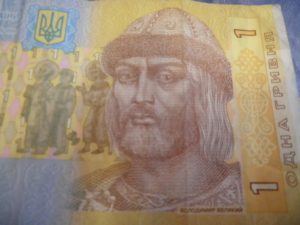
The Economist has published updated data on the rating of world currencies, the so-called Big Mac Index, according to which the cost of the hryvnia is underestimated by 61.3%, and the real rate according to purchasing power parity should be UAH 9.93 per U.S. dollar, the Ukrainian Dzerkalo Tyzhnia (Mirror Weekly) ezine said. Early this year, the Ukrainian currency was underestimated by 65.2% according to the Big Mac Index.
The Big Mac Index is an index created by The Economist based on the theory of purchasing power parity (PPP). Over the long-term, PPP theory states that currency exchange rates should equal the price of a basket of goods and services in different countries.
The official forex rate set for Ukraine’s hryvnia on July 12 is UAH 25.8 per U.S. dollar.

The index of business expectations of enterprises in Ukraine for the next 12 months has reached the highest level since the second quarter of 2011 – 120.6%, according to a survey of the National Bank of Ukraine (NBU) on business expectations, which was conducted in the first quarter of 2018. “The revival of business activity is expected by companies of all types of economic activity… High pace of growth of economic activity remains in place, mainly due to improved forecasts for growth in total sales of products, as well as investment costs for machinery, equipment and stock,” reads a report posted on the NBU’s website.
According to the NBU, the business increased an assessment of the financial and economic situation of its enterprises for the seventh consecutive quarter. A total of 88% of respondents assess their position as “satisfactory” or “good.” At the same time, the NBU notes that the optimism of businesses regarding their own situation supports the expectations for an increase in the volume of production as a whole in Ukraine. “This was stated by every third enterprise out of those polled. Yet every second believes that the country’s output will remain at the current level. Representatives of companies in the processing industry, trade and agriculture are the most optimistic,” the survey notes.
There has also been an increase in the number of companies that are optimistic about changing their financial situation during the coming quarters. The survey was conducted from February 5 to March 6, 2018. A total of 670 enterprises from 22 regions of the participated in the survey. They represent the economy by main types of activity, forms of ownership, and the number of employees.

Consumer confidence index in Ukraine is growing for the fifth consecutive quarter: in Q4 2017 it reached 61 points, which is 3 points more than in Q3 2017 and 9 points more than in Q4 2016, according to the Nielsen global consumer confidence report. “Consumer behaviors are evolving. However, we see how demanding they are in selection of goods, services and brands,” Managing Director of Nielsen in Ukraine and Belarus Vaios Dimoragas said.
According to him, having a limited budget, consumers want impressions and positive emotions from shopping, the Internet helps them make the right choice before buying.
The index is calculated by three indicators: the consumers’ assessment of the prospects for the labor market in the next 12 months, the level of financial wellbeing in the next 12 months, the willingness to spend money at the moment.
The increase in the consumer confidence index in the fourth quarter of 2017 compared to the third quarter of the same year is due to the improvement in the indicators for all three indicators.
According to the document, the absolute majority of Ukrainians continues to believe that the country is in a state of crisis, while the number of those has increased slightly: 93% – in the fourth quarter 2017 against 92% – in the third quarter 2017.
The number of consumers, who believe that the country will not get out of the crisis in the next 12 months, fell to 66% at the end of 2017 with a 74% quarter before.
On the first and second places in the list of concerns of Ukrainians are still feelings about the growth of utilities tariffs and war: 29% and 28% of consumers are worried about this, respectively. The top five reasons for experiencing also include rising prices for food, economy and health, according to the study.
According to it, 26% of Ukrainian consumers do not have free funds after buying essential goods. Those, with whom they stay, spend free money on new clothes (37%), make savings (29%), have fun outside the house (26%).
The value of the index above 100 points indicates the prevalence of optimists in the country, pessimists are below 100 points, and the value of 100 points is about the balance between optimistic and pessimistic expectations from the future.